Studio visit with Carlotta Cardana
Carlotta Cardana is an Italian editorial and commercial photographer based in London, having previously lived in Italy, Argentina and Mexico. Her personal work investigates how communities are affected by economic upheaval and oppression. She is also interested in how social contexts affect personal identities, such as amongst minorities or subcultures.
Harry Mitchell is a photographer based in London. He photographs regularly for the Financial Times, M le Monde Magazine, GQ and Afar among others.
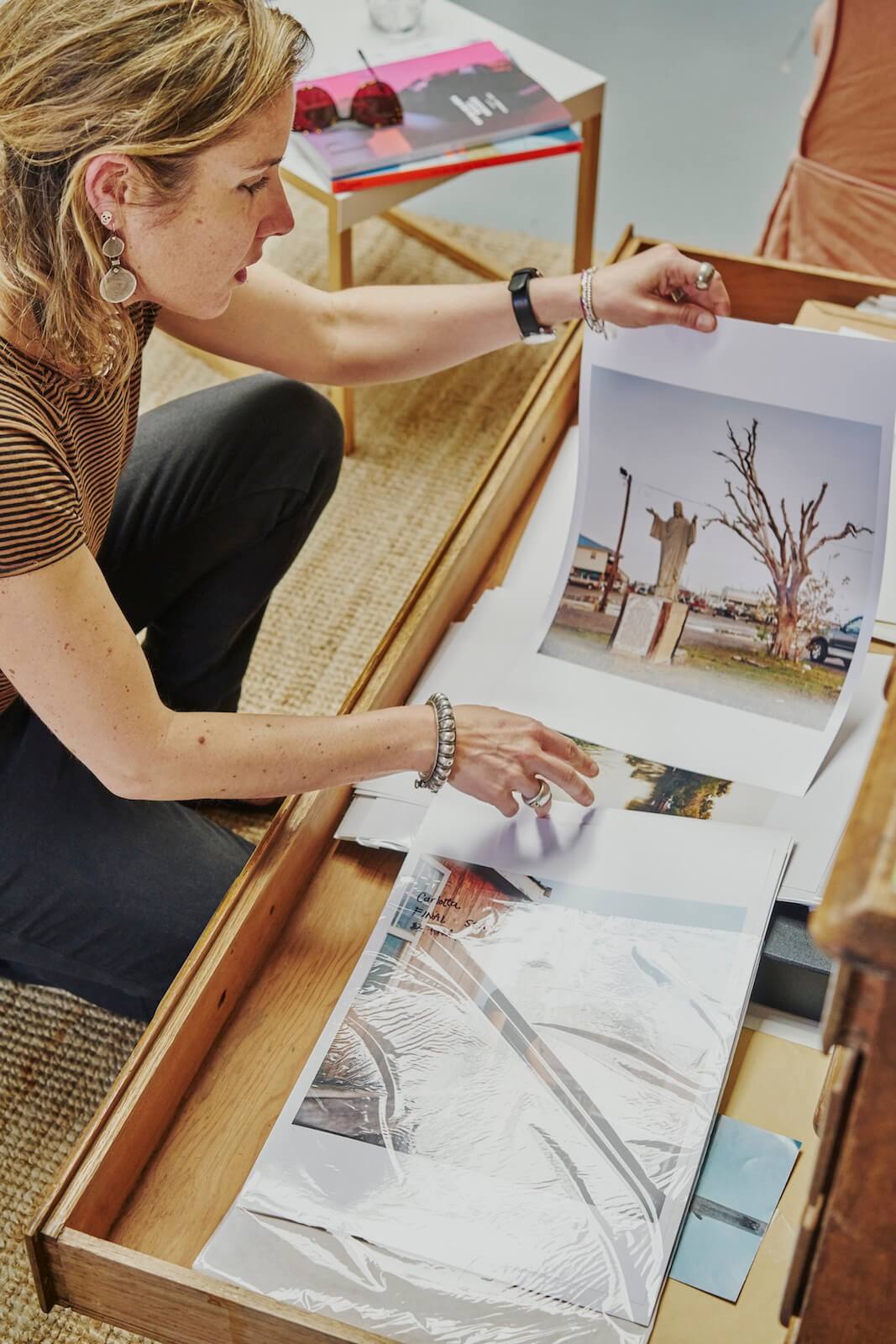
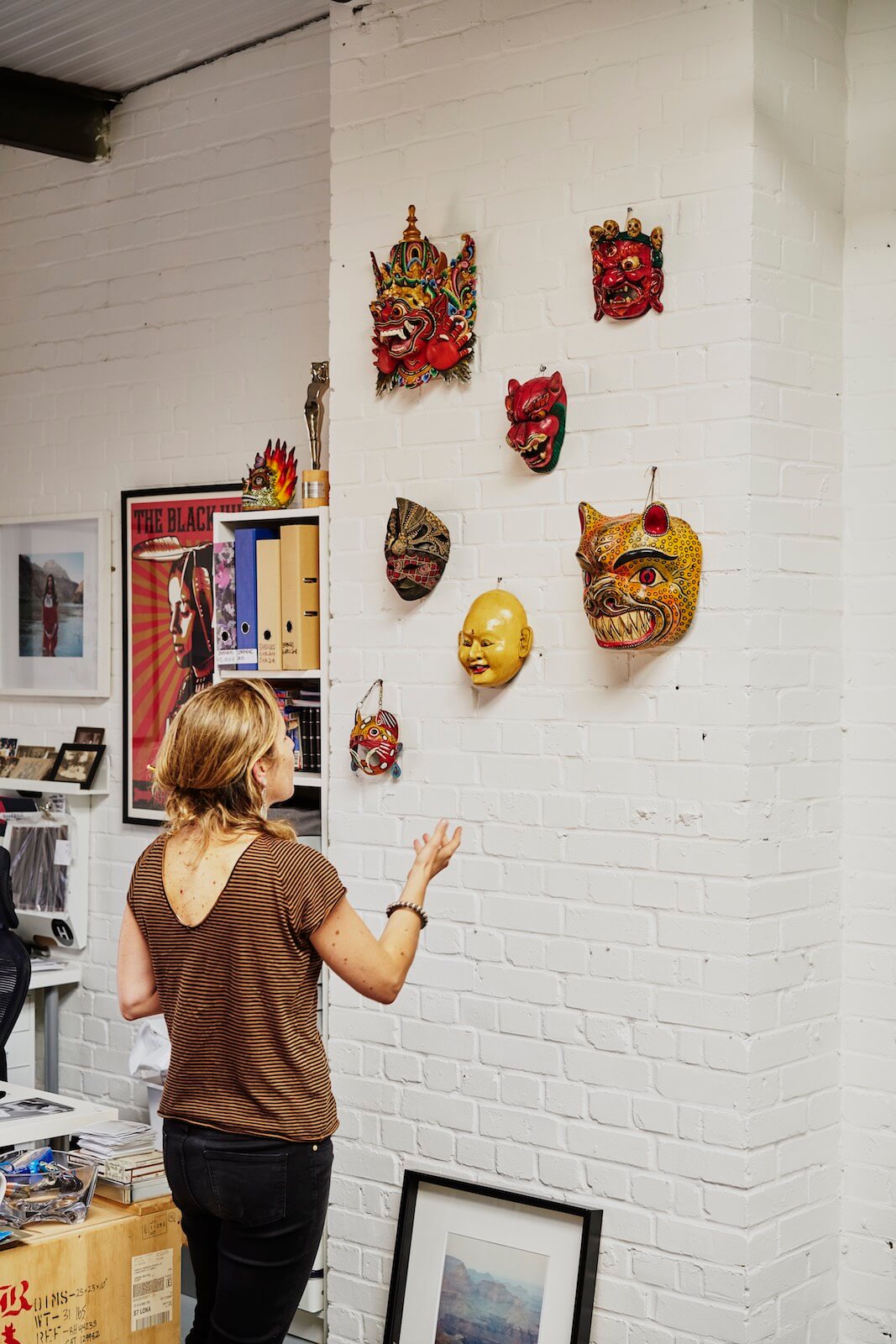
Pauline Magnenat: How does one go from working as a producer in a circus academy to working full time as a photographer?
Carlotta Cardana: It didn’t exactly happen overnight! Photography has somehow always been in my life, but it wasn’t until my mid twenties that I decided to make it my profession. While I was working in the circus I used to take all opportunities to take pictures of the shows and the performers. At that time I was also running a music venue with some friends and I used to trade live pictures for the band’s merchandising. I also had an agreement with the local theatre, where I would get a season pass in exchange for pictures of the shows and festivals they put on. One day I just realised that photography was actually what I most enjoyed, so I ran away from the circus and went back to school. While in school I started assisting fashion photographers and shooting weddings for the local photographer. I saved some money, bought a digital camera and as soon as I got my diploma I jumped on a plane to Argentina: at the time my brother was living in Buenos Aires and we wanted to work on a couple of projects together. From there I went to Mexico City where I started freelancing for magazines. It was all quite casual but it worked very well in the end: I was living off my savings in countries where life wasn’t very expensive and at the same time I could work on my portfolio and get some experience working professionally.
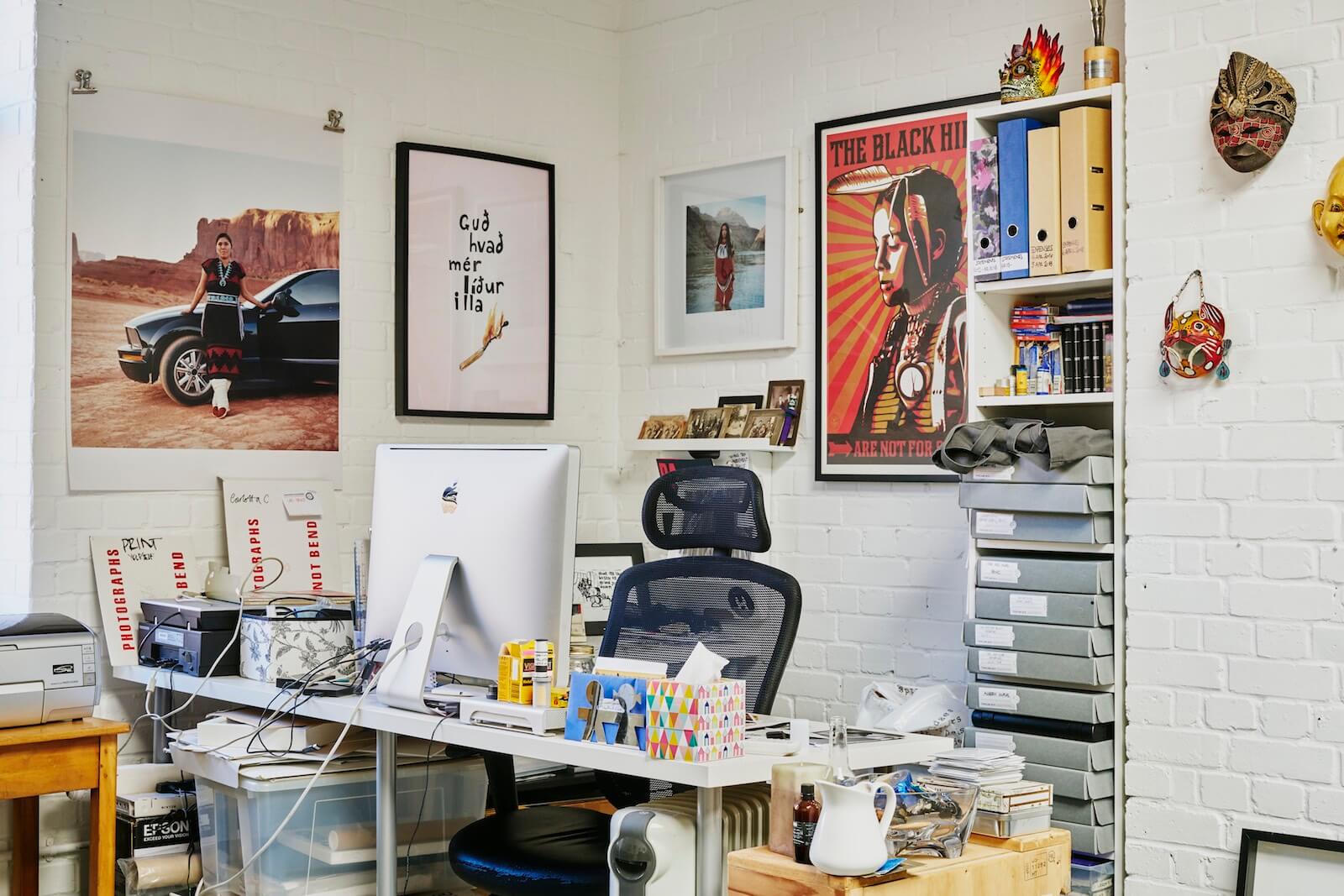
PM: Where is your studio exactly and how long have you been working there?
CC: My studio is in a repurposed factory in Bromley By Bow, in East London and I’ve been working there for over three years.
PM: What are the pros and cons of your studio?
CC: Lots of natural light and enough space to shoot and keep all my photo books. I used to work from home but my work/life balance wasn’t very healthy – at times it was difficult to stop working at decent hours, other times doing the laundry seemed much more urgent than replying to emails or doing my accounts. Having a separate space to work allows me to organise my time better, but it’s also another considerable expense.
PM: How much do you shoot on a weekly basis?
CC: I don’t shoot a lot, at least not in a conscious and considerate way. I used to shoot more and be more playful with photography, but after moving to London everything changed. I’m constantly chasing jobs and clients, doing admin work and I feel that my creative side has suffered from it a bit. A week might easily go by without having taken any pictures, but I’m always doing photography related things, whether it’s looking at books, going to exhibitions, researching, etc…
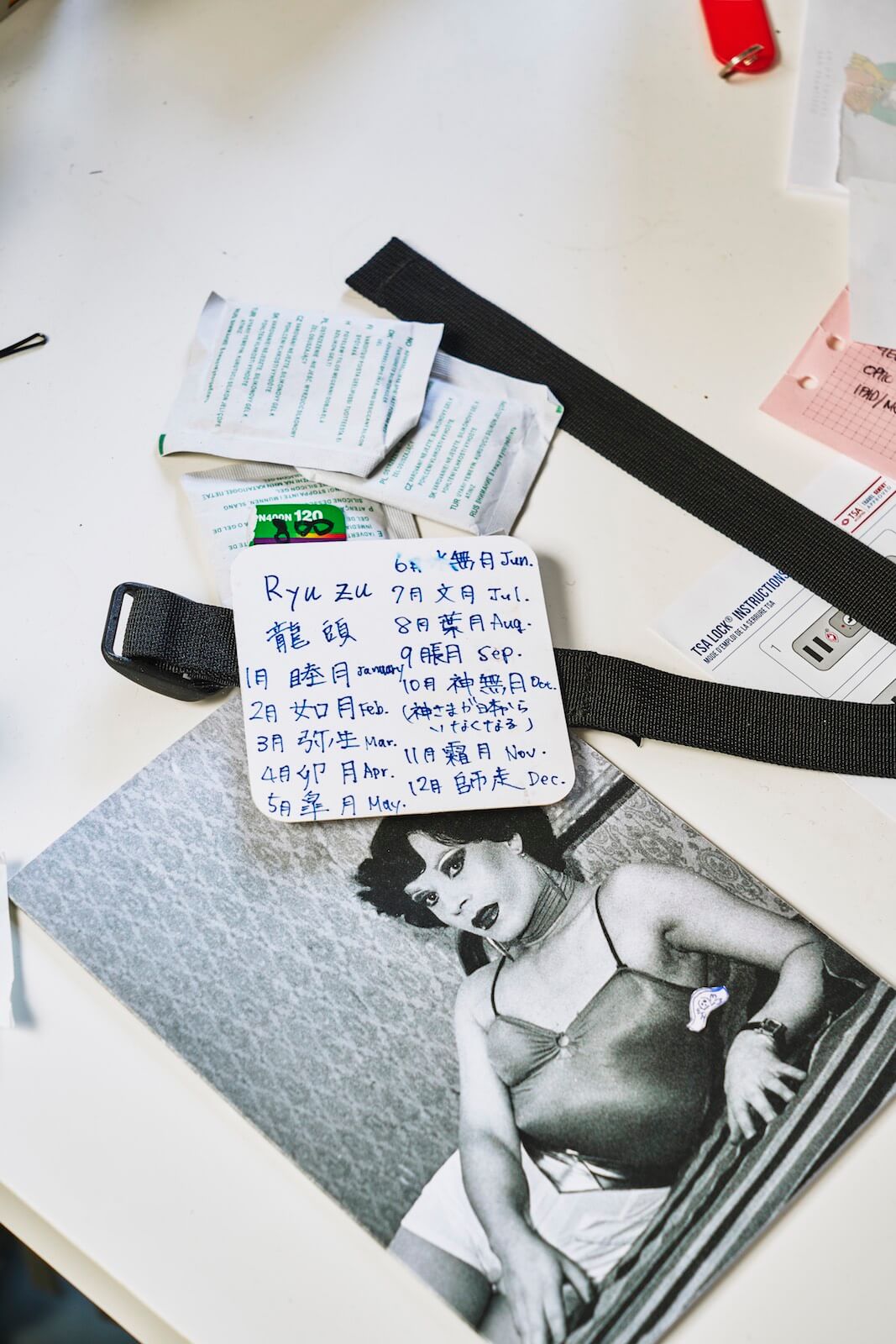
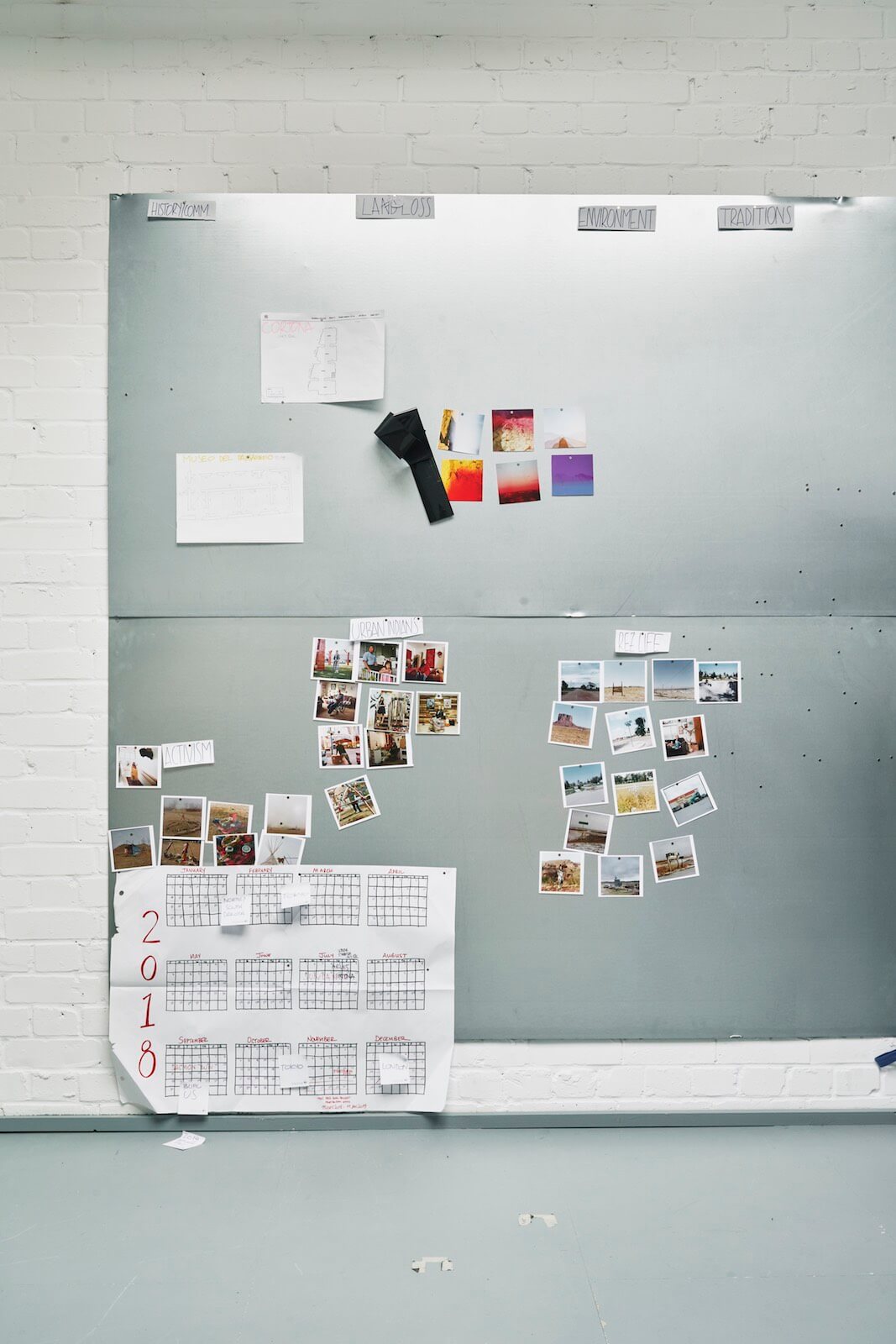
PM: You’re working with Danielle SeeWalker on The Red Road project, a series that aims to tell the stories of Native American people today, through your photographs and Danielle’s words. What are the pros and cons of collaborating with a writer on a project? Did you know Danielle before working together?
CC: I have known Danielle since I was 17, when we both ended up in a high school in Nebraska. She is originally from North Dakota and it is through her that I’ve started learning about Native American culture. This project is a culmination of twenty years of friendship and late night chats about life and wanting to do things together. On one particular night we went from “one day we should” to “let’s do this now” and that’s how it all started. I think it’s great to work with a writer, if you get along with the writer and have the same drive and purpose. You have someone who’s deeply involved with and committed to the same project, someone you can bounce ideas off, someone you can text in the middle of the night when you get an idea and someone on your side when the work takes you to difficult places, especially on an emotional level. Being a photographer is a very lonely practice and you need to be mad enough in order to make it. Danielle can enhance my madness but also contain it when needed. Working with a writer is a very close relationship and it can be difficult if you don’t get along. Also, most travel expenses will double, which is an issue when the project is self-financed.
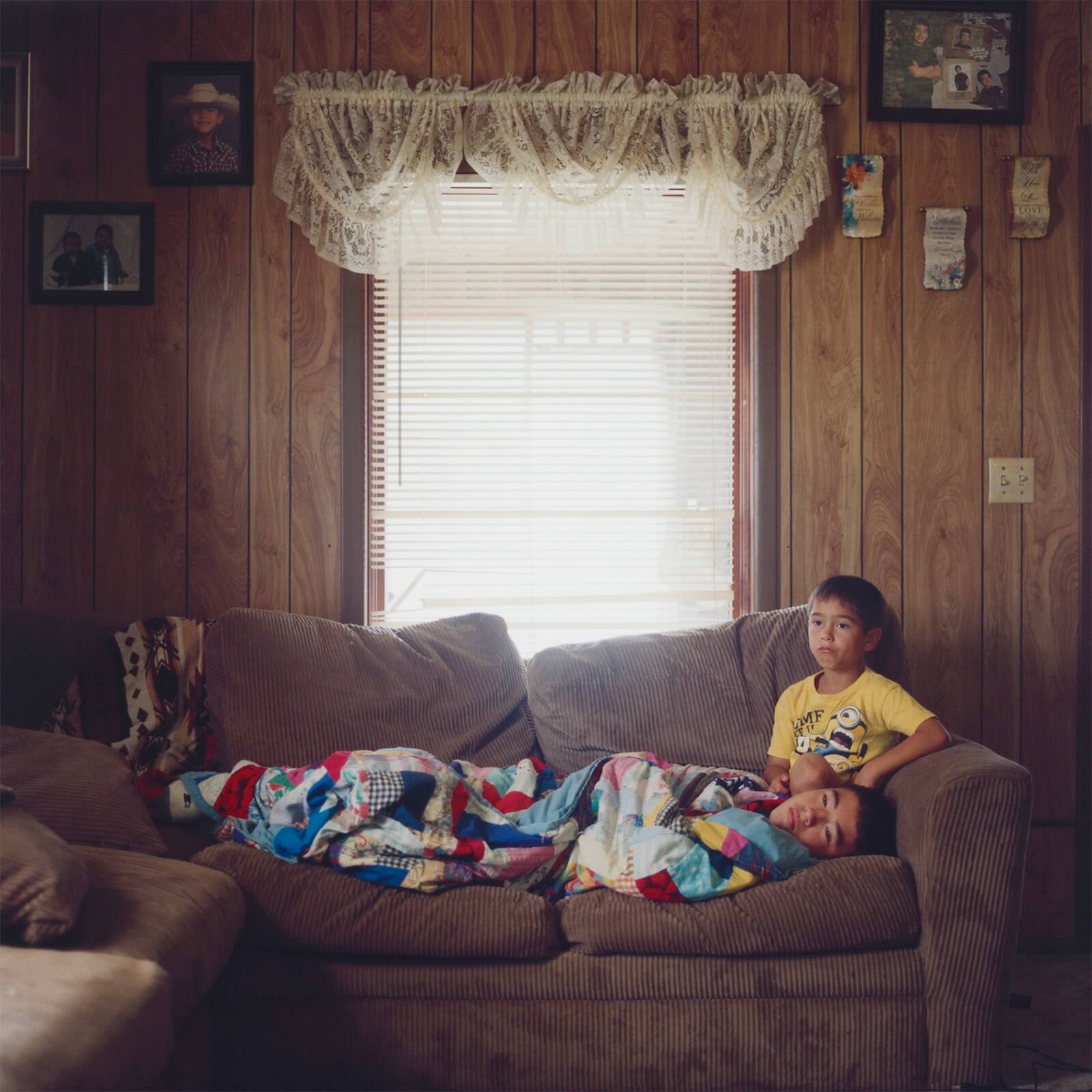
Alex and Hudson, from The Red Road Project
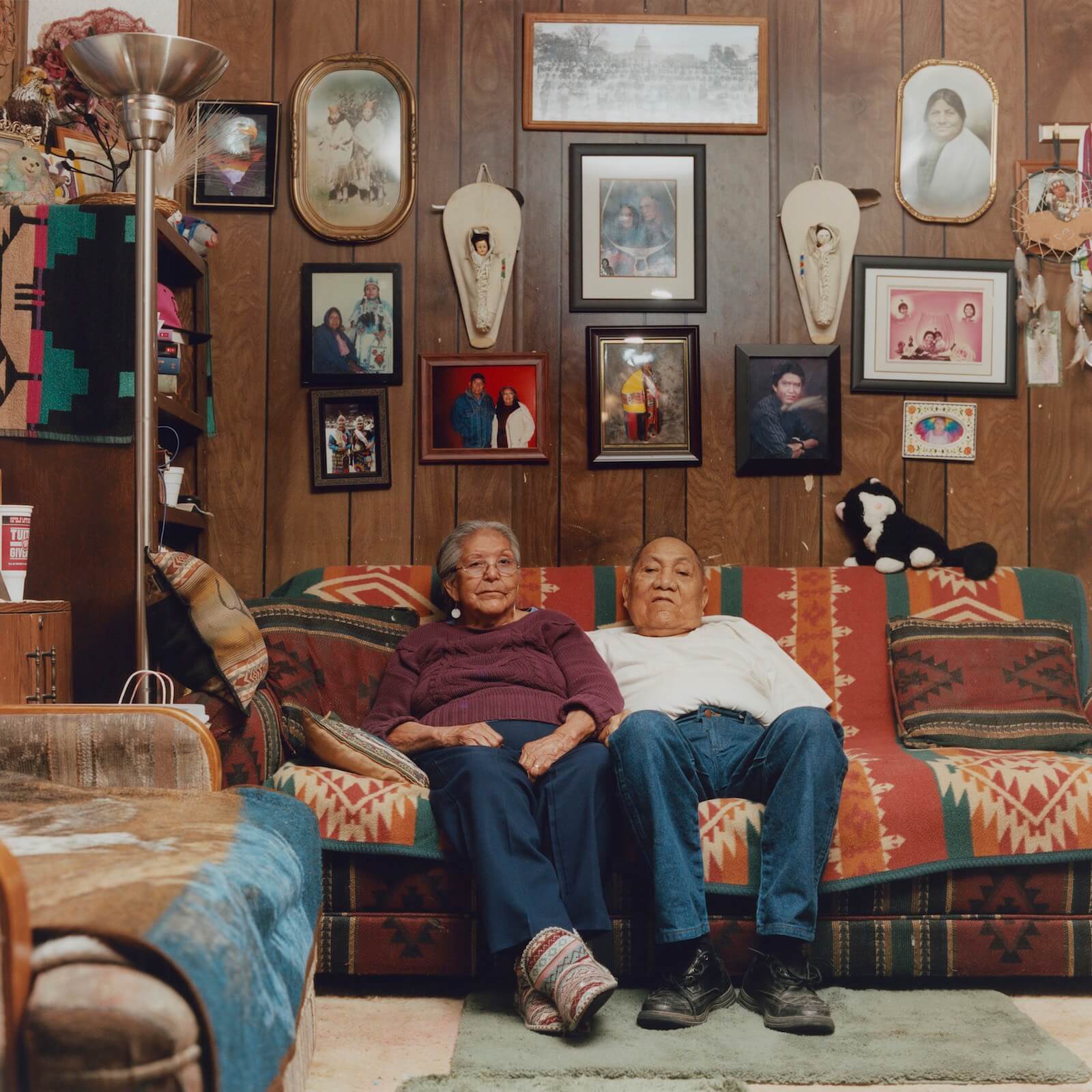
The Tylers, from The Red Road Project
PM: What brought you to these communities, and why did their stories resonate with you?
CC: My interest in this community came out of a personal connection. The desire to start this project came from the disparity I kept seeing between what Danielle was telling me about her family and the way Native Americans are usually portrayed in the media but also the preconceptions I had about their culture, which come from centuries of misrepresentation and perpetuated stereotypes. I think that the themes and values that we bring forward in the project are universal. We are talking about a specific culture and the consequences of colonisation and cultural genocide but we are also trying to highlight that the differences that one can find between cultures, traditions and customs are enriching and inspiring. We should not be afraid of what we don’t know or what looks different: despite our own personal journeys and backgrounds, we all have the same needs of being loved, feeling connected, cherished and respected.
PM: Did you easily get accepted and welcomed in the different communities? What were some of the happiest and most difficult moments you encountered while working on the project?
CC: No, I’ve never found it so hard to be accepted and welcomed straight away. I understand the mistrust and the unwillingness to open up: they are the consequences of some of the things we are trying to undo. Having said this, I’ve never felt so accepted and welcome once people understood what our objectives were. We have met people who at first would pretty much refuse to talk to us (or me, being the stranger with a camera), but then we’d find ourselves sat at their dining table going through piles of family albums later on. Once, after we gave a talk at a high school, one of the students took us home so we could meet the rest of the family. They had very little and were not expecting us, but they immediately shared their modest dinner and their stories with us. On a few occasions people have told us that we’ve made them change their perspective on a few things and inspired them to start their own projects. These are the moments we most treasure and the things we try to keep in mind when we are confronted with obstacles or feel discouraged. At the same time, I’ve found it particularly difficult to sit with people day after day and listen to some very tragic stories. We have been brought to tears on several occasions and it once got to the point where I started feeling ashamed of my privilege. I have a loving family, supporting friends, food on the table every day and never had to deal with issues such as alcoholism, abuse, violence, poverty – issues that have touched every single person we’ve met while on the road. This project has undoubtedly changed me and my perspective on life.
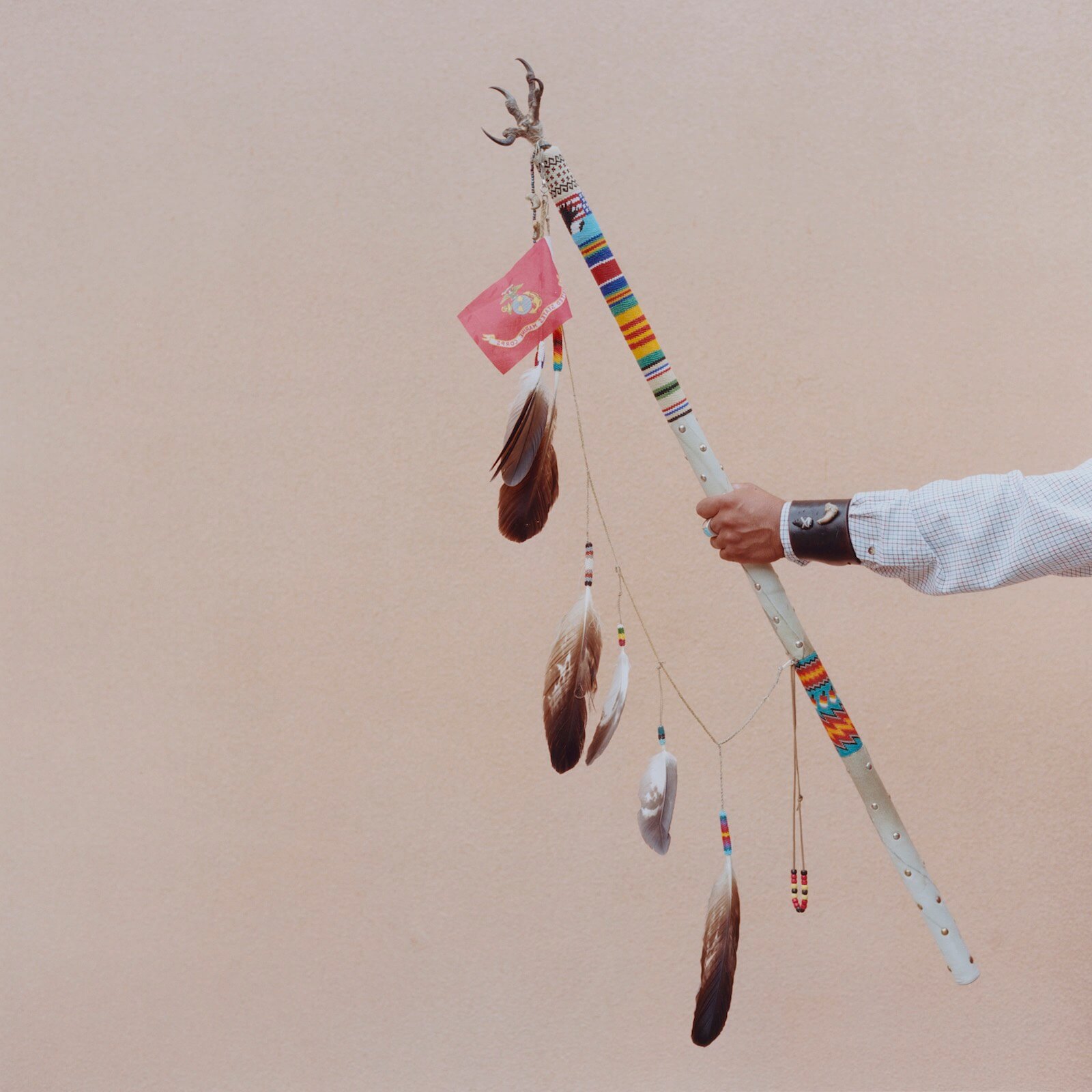
Hanson Chee Staff, from The Red Road Project
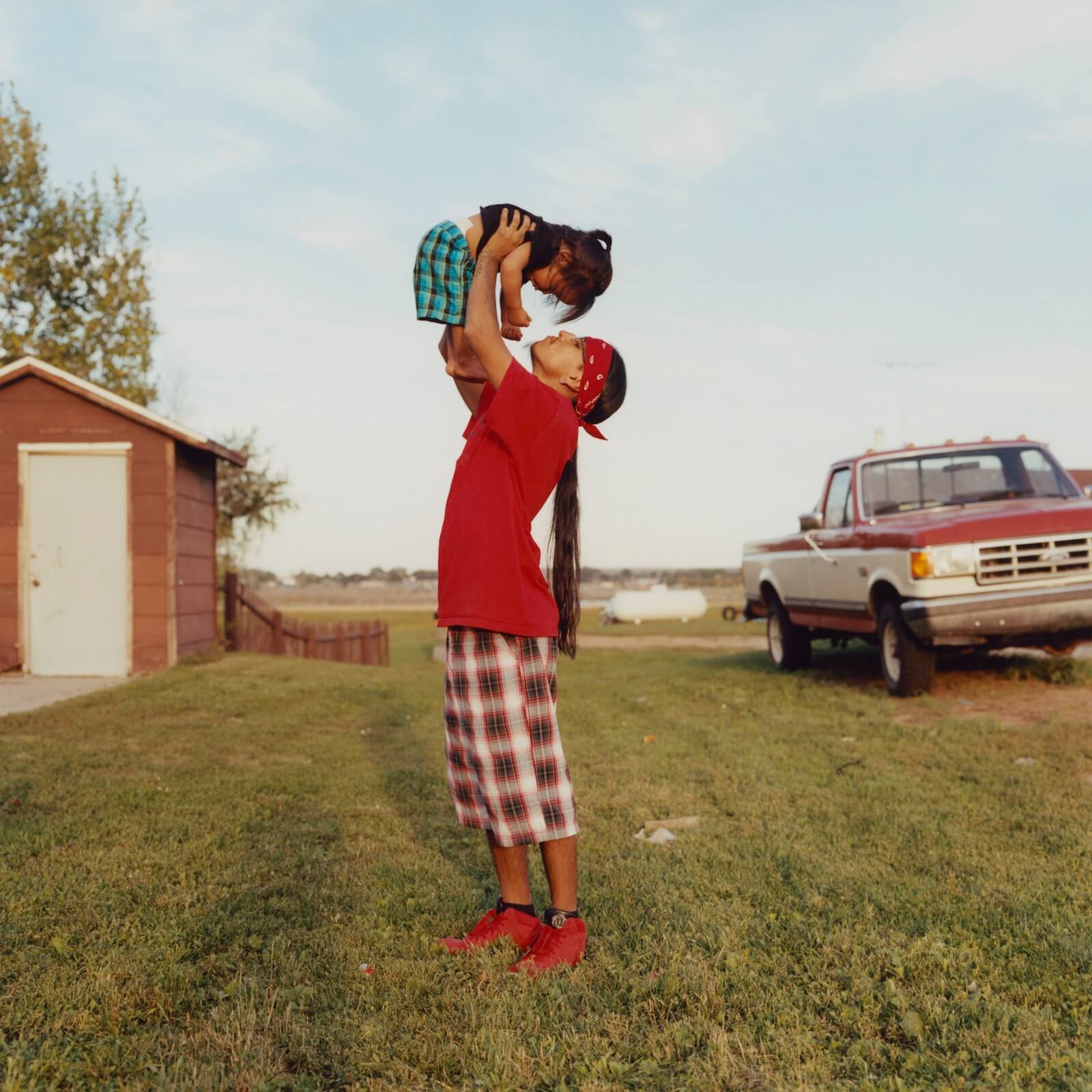
Hanson and Elijah, from The Red Road Project
PM: How do you see the project evolving? Are there more communities you wish to visit and work with in the future?
CC: We are working on specific themes and there are still a few areas that we would like to visit, such as the Pacific Northwest and the East Coast. Later this year we’ll travel from California to Washington State and look at how the construction of dams has impacted local tribes, particularly displacing the salmon, which is sacred to the local tribes just as the buffalo is sacred to the plains’ people.
PM: Do you plan to release the project as a book with Danielle’s writing?
CC: Yes, we started this project with a book in mind but it has grown so much and gone beyond photography that we are in the process of setting up a non-profit so we can do more to give back to these communities.
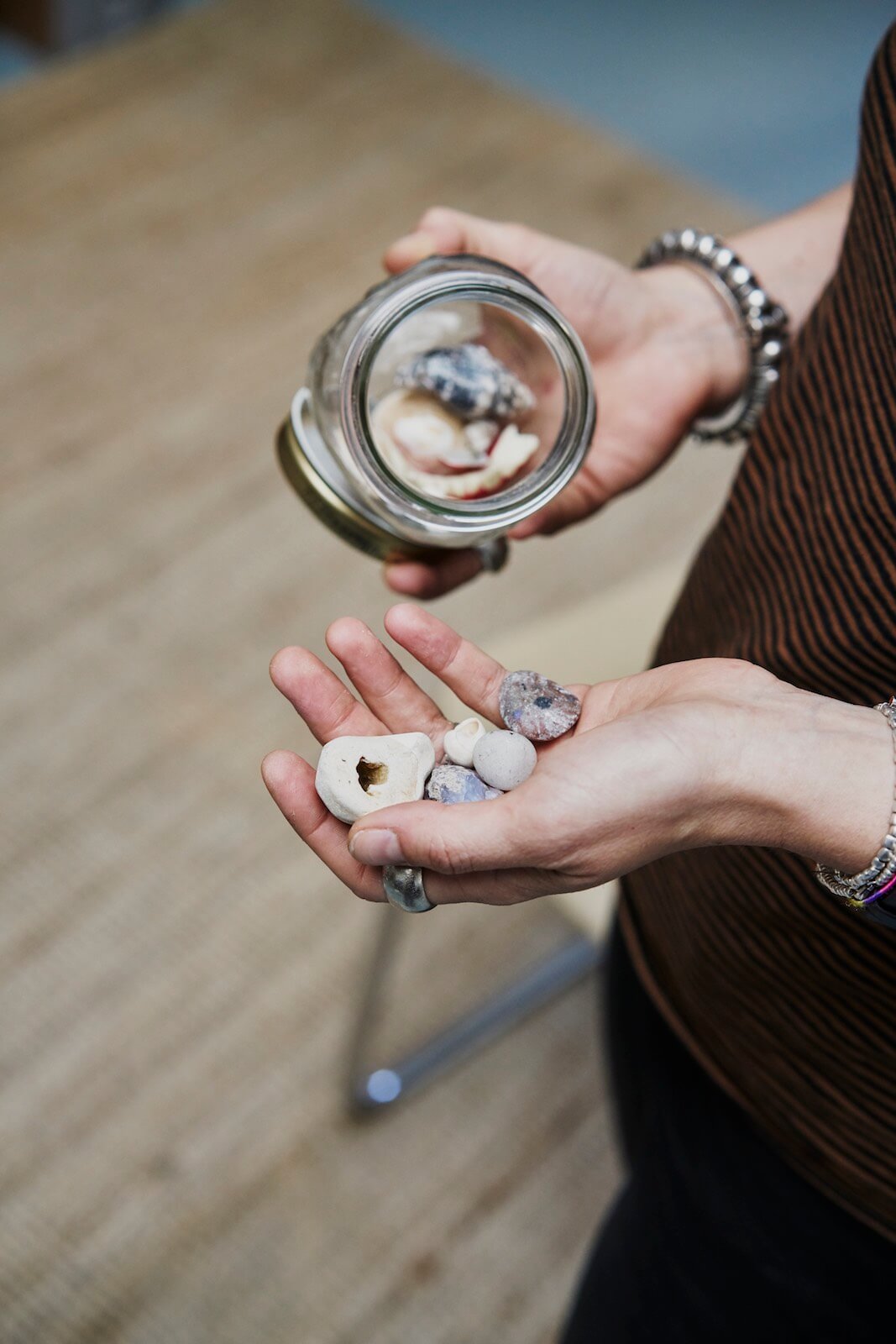
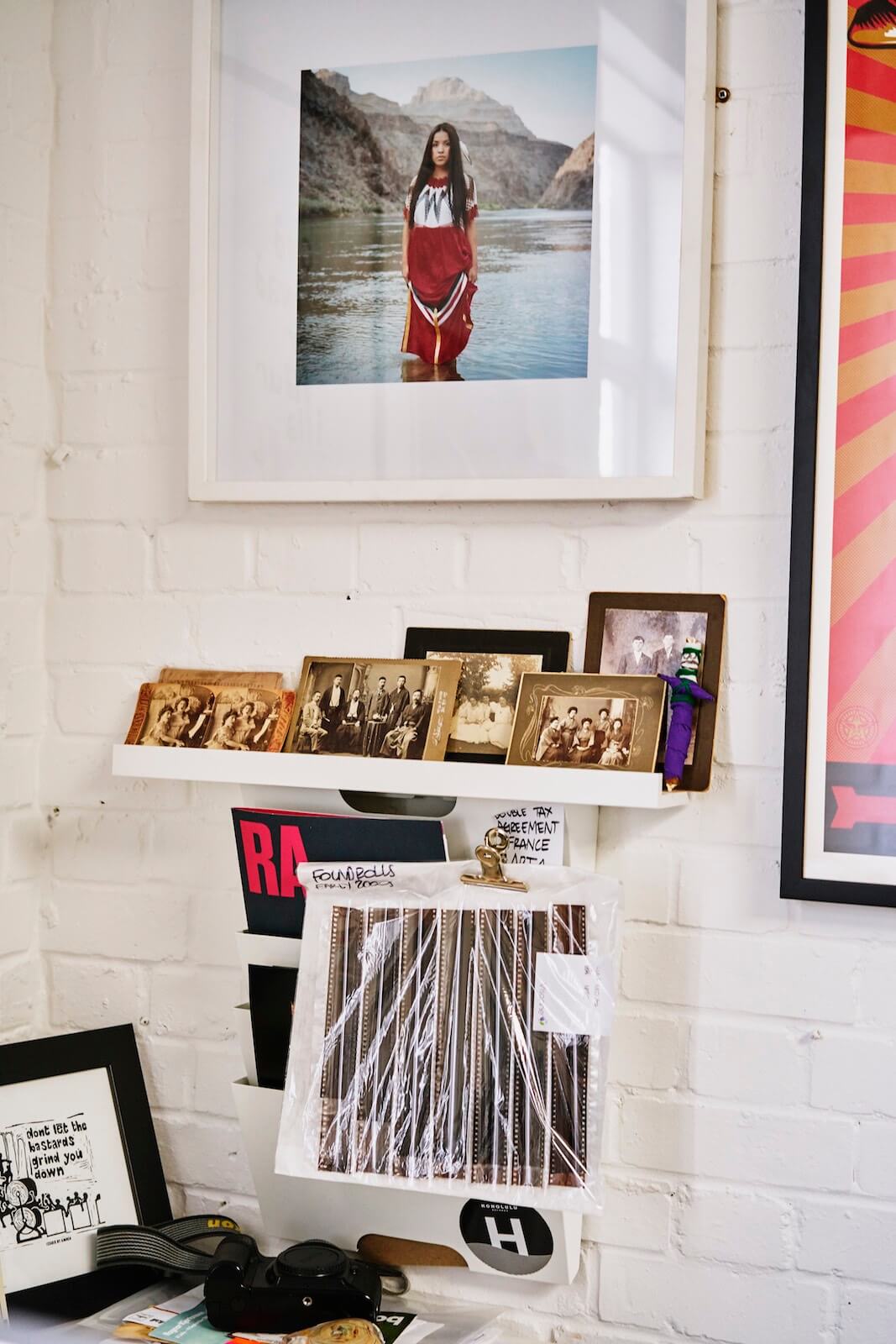
PM: Does editing your work comes naturally to you?
CC: No, it takes effort and time. One of the reasons I like to shoot film is that there is a time between shooting and seeing the results. Most of the times I’m disappointed when I see the contact sheets: the images hardly ever look as good as I had them in my head. If I can, I rather put them away and go back to them after a certain time. Or I make little prints and leave them on my board until I know what feels right.
PM: What do you look for in an image?
CC: Good composition, nice light, nice colours, but mostly some kind of emotional trigger.
PM: What would be your dream assignment?
CC: Anything that involves a lot of driving in places I’ve never been before, a vague brief and very little planning.
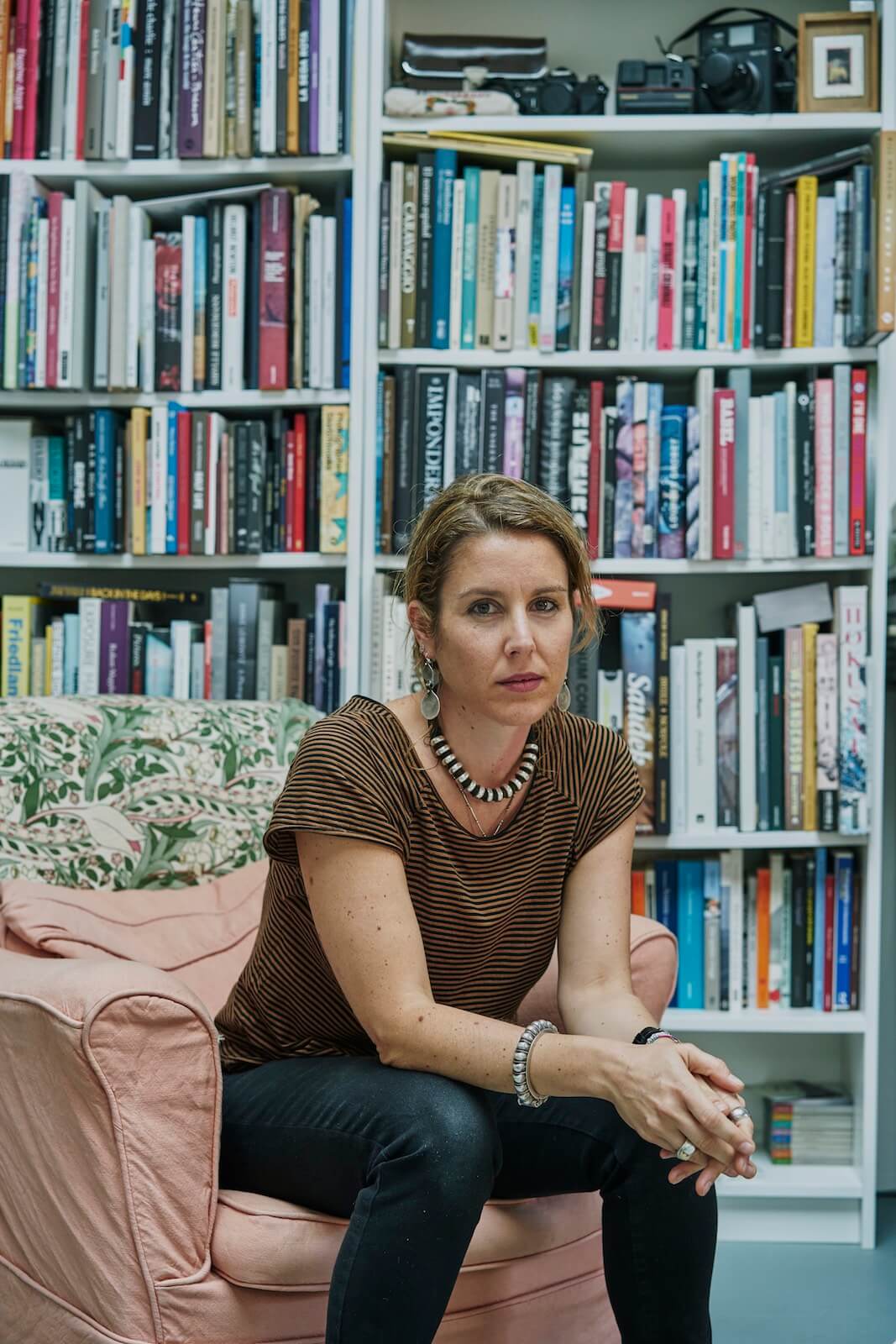
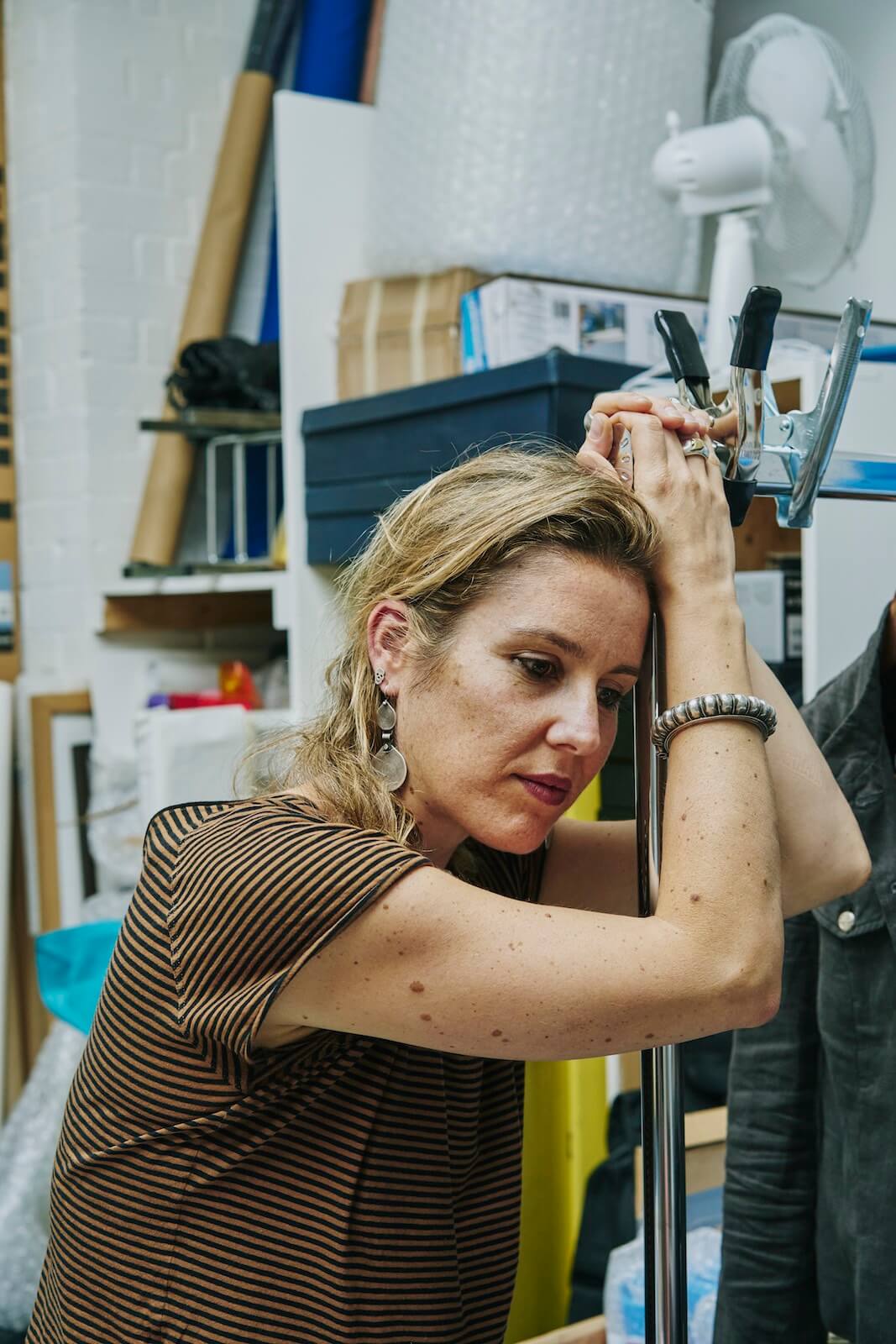
PM: What excites you most about photography?
CC: Photography for me is a tool to learn and discover new things. I also like the fact that it’s very lonely and all in your head: when I get “in the zone” everything else disappears and it becomes a sort of meditation that leaves me with a sort of “high”.
PM: Do you think one can learn a way of seeing?
CC: I think you can train your eye, but the way you see things is strictly connected to who you are: I believe that in order to develop a truthful way of seeing you have to first work on yourself and understand who you are.
PM: Do you think people understand photography?
CC: Some people do, some people don’t. Some people see things that are not there and that’s both beautiful and annoying. I also think that the general understanding of photographing is changing a lot these days because photography has never been so ubiquitous.
PM: What’s next?
CC: I’m hoping to finish shooting The Red Road Project soon son I’m going to take a break from London and will be based between the US and Japan for a while.
Rocket Science has been featuring the best in contemporary photography since 2016 through interviews, conversations, studio visits and essays by photographers, writers and artists. Your donation to Rocket Science directly supports new artistic content in the pages of Rocket Science and helps us pay our contributors fairly.
